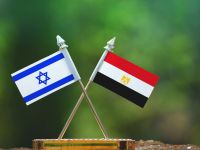Alternative energy and resource security partnerships part of Qatar Foundation’s effort to globalize research

As international partnerships led by Qatar Foundation for Education, Science and Community Development (QF) take shape around the world; scientists will be exploring the applications of Qatar’s home-grown research for the developing world at QF’s Annual Research Forum this month.
In its second edition, the Annual Research Forum – the largest home-based scientific event in Qatar – will increase focus on energy and environment issues by devoting two separate tracks to each, recognizing the growing interest in the two intricately linked, yet distinct, fields of research.
QF’s Qatar Environment and Energy Institute (QEERI) will moderate a workshop on sustainable building design for academics, construction management and industry.
The session - open to academics, building construction management, and industry professionals - will explore both the economic and technical feasibility of alternative energy and water conservation practices in Qatar and the wider Middle East. With over 60 percent of electricity in Qatar and the GCC being used for building cooling and maintenance, the workshop will pay special attention to methods for reducing buildings’ energy footprint through the use of specific materials, designs, standards and codes.
“The environmental and social challenges facing Qatar are shared by many of our neighbors and fellow communities in the region and abroad,” said Dr. Abdelali Haoudi, Vice President for Research at QF. “Our work on energy and environment research is injecting renewed momentum into Qatar’s journey away from a carbon economy and we are excited to be showcasing some of these efforts at the forum this year.”
QEERI had recently also propelled it’s local mission to an international scale when it joined forces with the Chirac Foundation of France to introduce how research carried out in Qatar can support water-security initiatives in developing countries. The first fruits of the partnership came as the organizations co-sponsored a forum on “Solidarity for Water in Niger Basin Countries” in Bamako, Mali. At the forum, scientists and experts discussed how climate change and population growth are affecting the soil, water, and air of the Niger Basin and what measures might be taken to address these issues.
Dr. Rabi Mohtar, Executive Director of QEERI, led the Qatar delegations to Mali. “QEERI’s primary research on solar energy and its application to water desalination, sustainable urbanization and ecological restoration in Qatar has wider implications for the Middle East and North Africa, as well as desert environments the world over.”
“We are looking forward to sharing this and other examples of globalized research and QF’s role as a bridge between the developed and developing worlds at the Annual Research Forum, and to exploring additional partnership opportunities in energy and environmental research for developing countries,” he added.
The Forum will also feature parallel sessions and workshops on research in the fields of biomedicine, computing, arts, humanities, social sciences, and Islamic studies research.
The Second Annual Research Forum will be held from November 20 through 22 at the Qatar National Convention Centre, and is dedicated to the globalization of research by promoting a scientific culture in the region and around the world. Sponsors of this year’s forum include ExxonMobil, Shell, Total, Chevron and Carnegie Mellon University in Qatar.
Background Information
Qatar Foundation
Qatar Foundation (QF) is a non-profit organization made up of more than 50 entities working in education, research, and community development.
Our unique ecosystem—supported by partnerships with leading international institutions—is built on initiatives that address our most pressing challenges, create global opportunities, and empower people to shape our present and future.






